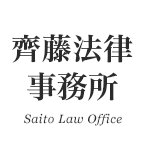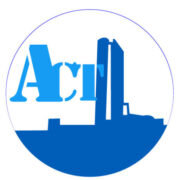Best Truck Accident Lawyers in Tokyo
Share your needs with us, get contacted by law firms.
Free. Takes 2 min.
List of the best lawyers in Tokyo, Japan
About Truck Accident Law in Tokyo, Japan
In Tokyo, Japan, truck accidents are governed by a combination of national traffic laws and local regulations designed to ensure road safety and provide remedies to victims of traffic accidents. The legal framework includes the Road Traffic Act, the Automobile Liability Security Law, and specific provisions regarding commercial transport. These laws outline the responsibilities of truck drivers and trucking companies, as well as the rights of accident victims to compensation for injuries, damages, and losses.
Why You May Need a Lawyer
If you've been involved in a truck accident in Tokyo, Japan, you might find it necessary to seek legal assistance for multiple reasons. These situations include complex insurance claims, injuries requiring long-term care, disputes over fault or liability, and accidents involving professional commercial vehicles. A lawyer specialized in truck accidents can navigate the intricate legal and procedural landscape, ensuring that your rights are upheld and that you receive fair compensation.
Local Laws Overview
Several local laws in Tokyo are particularly relevant to truck accidents. The Road Traffic Act sets out the rules of the road, while the Automobile Liability Security Law mandates vehicle insurance and outlines compensation for victims. Tokyo also implements specific regulations for commercial vehicles, including weight and loading standards, operating hours, and route restrictions to mitigate the risk of accidents. Importantly, Japan's compensation system often involves negotiation with insurance companies, and legal action may be necessary to obtain just compensation.
Frequently Asked Questions
What should I do immediately after a truck accident in Tokyo?
Ensure your safety and call emergency services. Document the scene if possible, and report the accident to the police, as a record will be crucial for any legal proceedings.
How is fault determined in a truck accident?
Fault is based on police reports, evidence from the scene, and sometimes, specialized reconstructions. Japan's comparative negligence rules may adjust compensation based on each party's level of fault.
Are there any time limits for filing a claim?
Yes, personal injury claims must generally be filed within three years of the accident, and property damage claims within five years. However, specifics depend on the case, so consulting a lawyer promptly is advisable.
What compensation can I receive?
Compensation may cover medical expenses, lost wages, pain and suffering, and property damage. The amount depends on the accident's impact and negotiations with insurers or the outcome of legal actions.
How does insurance work in truck accident cases?
Japan requires all vehicles to have liability insurance, which covers basic compensation. Additional coverage and compensation can be sought through legal proceedings or insurance negotiations.
Can I still receive compensation if I was partially at fault?
Yes, under Japan's comparative negligence system, you may be eligible for reduced compensation reflecting your share of fault.
What if the truck driver was violating regulations?
Violations of safety regulations can influence liability and compensation. Evidence of such violations significantly strengthens your case.
Should I accept the insurance company's initial offer?
It's advisable to consult with a lawyer before accepting any offer, as initial offers may not fully cover your losses and expenses.
Can I sue the trucking company?
If the company's negligence contributed to the accident, it might be possible to sue the company for compensation.
How do I find a lawyer experienced in truck accidents?
Seek recommendations, research lawyers with truck accident expertise, and consult the Tokyo Bar Association for referrals.
Additional Resources
The Tokyo Bar Association provides legal referrals and resources for those seeking representation. Japan's Ministry of Land, Infrastructure, Transport and Tourism offers information on road safety and commercial transport regulations, which can be helpful for understanding the context of your case. Additionally, consumer rights organizations and legal aid services can offer guidance and support.
Next Steps
If you need legal assistance following a truck accident in Tokyo, consider taking the following steps:
- Gather all relevant documentation, including medical reports, police reports, and any photographic evidence from the scene.
- Consult with a lawyer experienced in truck accidents to assess your case and understand your options.
- Ensure timely filing of any claims to meet Japan's statute of limitations for accident claims.
- Work closely with your lawyer to negotiate fair compensation, whether through insurance negotiations or legal proceedings.
Lawzana helps you find the best lawyers and law firms in Tokyo through a curated and pre-screened list of qualified legal professionals. Our platform offers rankings and detailed profiles of attorneys and law firms, allowing you to compare based on practice areas, including Truck Accident, experience, and client feedback.
Each profile includes a description of the firm's areas of practice, client reviews, team members and partners, year of establishment, spoken languages, office locations, contact information, social media presence, and any published articles or resources. Most firms on our platform speak English and are experienced in both local and international legal matters.
Get a quote from top-rated law firms in Tokyo, Japan — quickly, securely, and without unnecessary hassle.
Disclaimer:
The information provided on this page is for general informational purposes only and does not constitute legal advice. While we strive to ensure the accuracy and relevance of the content, legal information may change over time, and interpretations of the law can vary. You should always consult with a qualified legal professional for advice specific to your situation.
We disclaim all liability for actions taken or not taken based on the content of this page. If you believe any information is incorrect or outdated, please contact us, and we will review and update it where appropriate.












